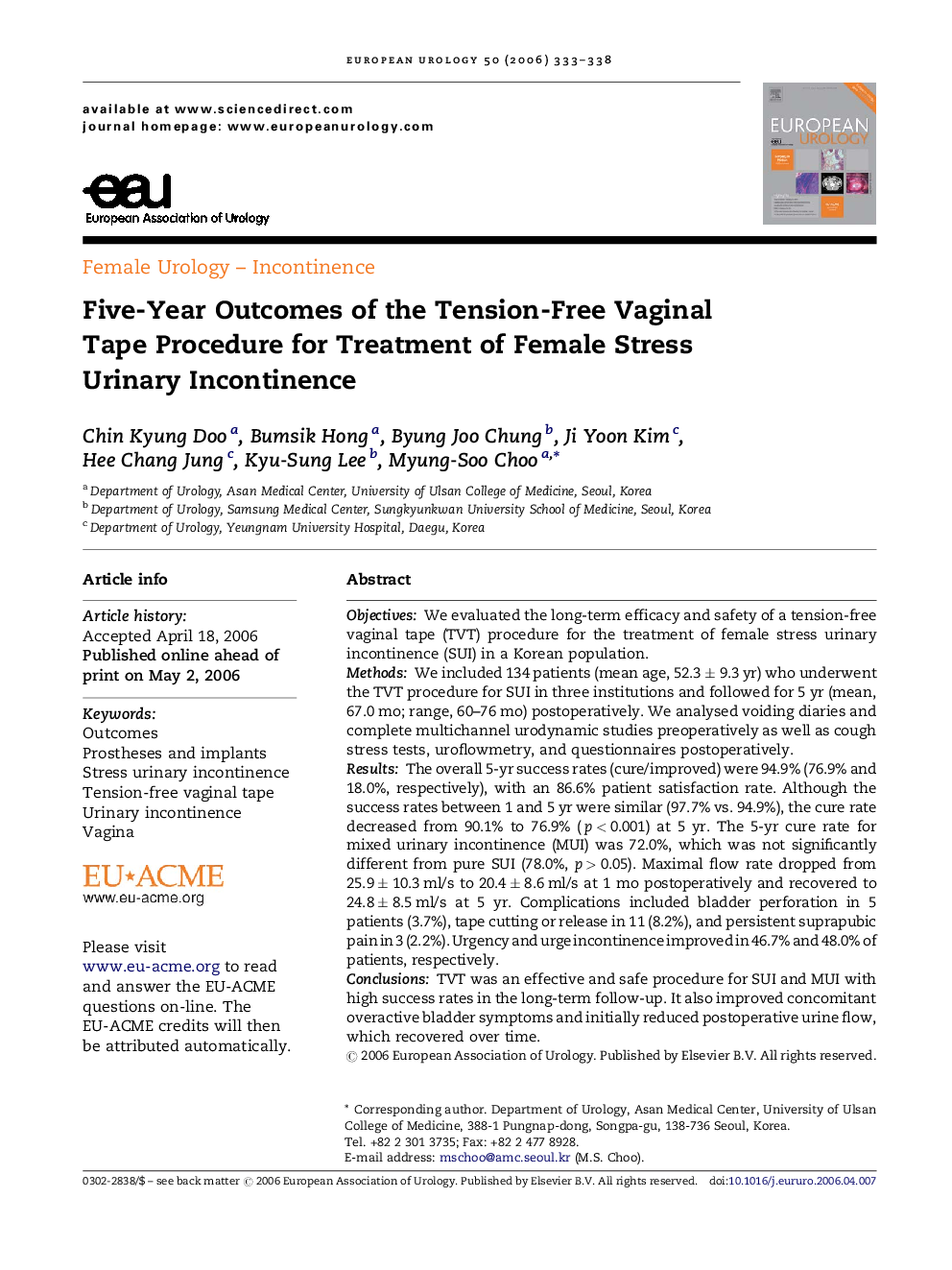| Article ID | Journal | Published Year | Pages | File Type |
|---|---|---|---|---|
| 3929060 | European Urology | 2006 | 6 Pages |
ObjectivesWe evaluated the long-term efficacy and safety of a tension-free vaginal tape (TVT) procedure for the treatment of female stress urinary incontinence (SUI) in a Korean population.MethodsWe included 134 patients (mean age, 52.3 ± 9.3 yr) who underwent the TVT procedure for SUI in three institutions and followed for 5 yr (mean, 67.0 mo; range, 60–76 mo) postoperatively. We analysed voiding diaries and complete multichannel urodynamic studies preoperatively as well as cough stress tests, uroflowmetry, and questionnaires postoperatively.ResultsThe overall 5-yr success rates (cure/improved) were 94.9% (76.9% and 18.0%, respectively), with an 86.6% patient satisfaction rate. Although the success rates between 1 and 5 yr were similar (97.7% vs. 94.9%), the cure rate decreased from 90.1% to 76.9% (p < 0.001) at 5 yr. The 5-yr cure rate for mixed urinary incontinence (MUI) was 72.0%, which was not significantly different from pure SUI (78.0%, p > 0.05). Maximal flow rate dropped from 25.9 ± 10.3 ml/s to 20.4 ± 8.6 ml/s at 1 mo postoperatively and recovered to 24.8 ± 8.5 ml/s at 5 yr. Complications included bladder perforation in 5 patients (3.7%), tape cutting or release in 11 (8.2%), and persistent suprapubic pain in 3 (2.2%). Urgency and urge incontinence improved in 46.7% and 48.0% of patients, respectively.ConclusionsTVT was an effective and safe procedure for SUI and MUI with high success rates in the long-term follow-up. It also improved concomitant overactive bladder symptoms and initially reduced postoperative urine flow, which recovered over time.
